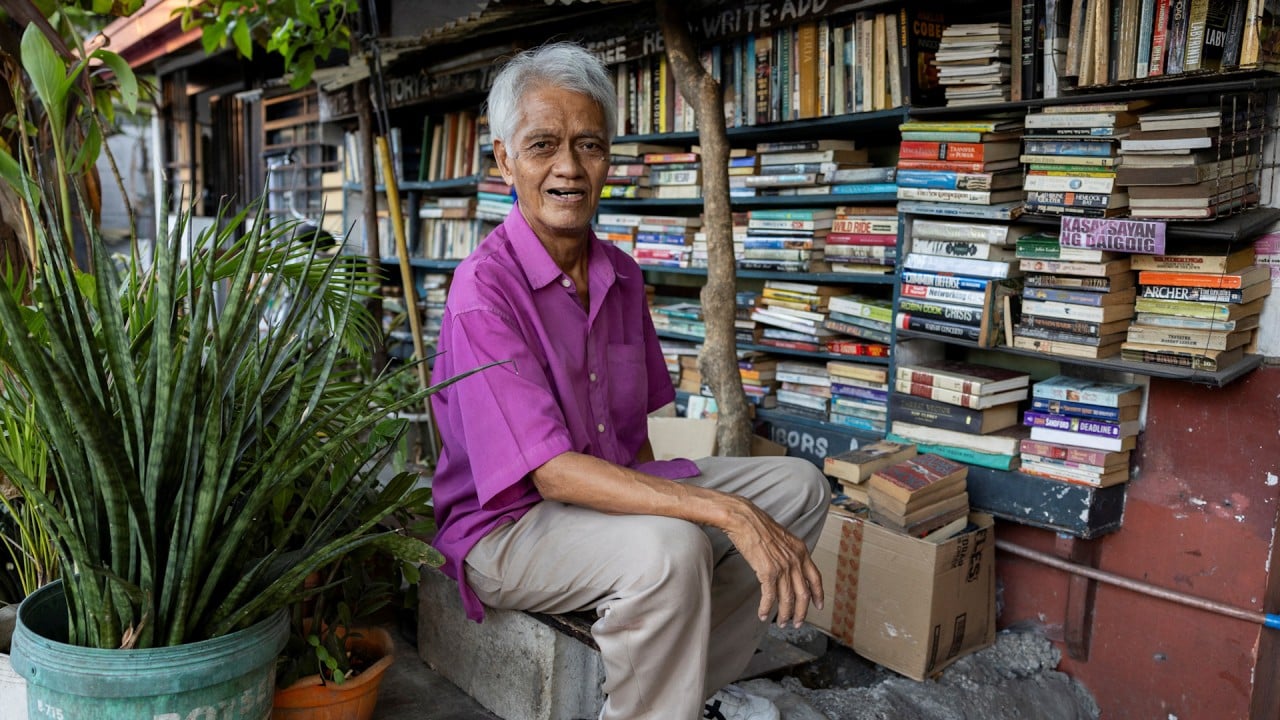
Video of Philippine LGBTQ student given forced haircut sparks anger, calls for inclusive policies
- The video shows a transgender student having a haircut in school after she was threatened with a denial of enrolment
- The incident has prompted calls by LGBTQ advocates for schools to implement inclusive policies for students regardless of sexual orientation
Dozens of protesters in Manila marched on March 15 at the grounds of the Eulogio “Amang” Rodriguez Institute of Science and Technology (EARIST) over the video showing the tearful transgender student having her hair snipped off by a schoolmate. The video was shared on Facebook by the national LGBTQ alliance Bahaghari.
The school’s student handbook states male students should observe a “barber’s haircut” of a short back and sides while female students with colourful hair highlights are not allowed on campus.
Bahaghari leader Arri Samsico told This Week in Asia that EARIST’s haircut policy had affected more than 50 LGBTQ students, most of whom had to shorten their hair to be allowed admission. According to LGBTQ advocates, the policy fails to take into account the sexual orientation and identity of LGBTQ students.
Samsico said transgender students had been raising the issue of the school’s haircut policy with its administrators since October. The administrators later verbally agreed to allow transgender students to enrol for the first term without the haircut conditions.
Philippine transgender beauty contestant soothes nerves over Bangkok brawl
Yet administrators appeared to have backtracked and told the LGBTQ students earlier this month that they would not be able to enrol for the second term unless they comply with the haircut rules.
Other transgender students from different schools who faced similar experiences as the student in the video have begun contacting the group, according to Samsico.
Manila’s city council, which funds the local college, said it planned to investigate reports of the enforced haircuts.
EARIST agreed last Saturday to suspend its hair policy and review its handbook guidelines after a mediated dialogue with the Commission on Higher Education (CHED) – the governing body of colleges and universities.
In Philippines, alarm over mail-order bride scheme that trafficks women to China
Its chairman Prospero de Vera said CHED did not have explicit policies on haircuts or gender expressions for students in higher educational institutions.
“The rules on student haircuts and uniforms are up to each university. There are no CHED rules on that issue as that is part of their exercise of their right to administration of higher education,” De Vera told GMA News on March 15.
Habijan said governing agencies such as CHED have a duty to ensure all schools under its purview implement inclusive policies for students.
“It is the governing body of all colleges and universities. I firmly believe that CHED must have power and jurisdiction over all tertiary schools, especially when it comes to universal welfare and protection of rights and dignity of Filipino students,” she told This Week in Asia.
Samsico said Bahaghari will lobby for anti-discrimination policies to be applied to educational institutions and ban rules that repressed students’ gender expressions.
“Students can unleash their true potential when they can be free about their true selves. Educational institutions must become a space for learners to be confident, as this will help them gain more knowledge during their time in school,” Samsico said.
In April last year, Batangas State University announced it would uphold its existing dress code policy that prohibits cross-dressing amid calls to amend the rules to accommodate transgender students.
K-12 schools – encompassing kindergartens to senior high schools – also continue to implement haircut and dress code rules specifically for male and female students only despite the Department of Education (DepEd) reiterating in 2022 a memorandum upholding a gender-responsive basic education policy, protecting its students from gender discrimination.
“DepEd regional and division offices have circulated the memorandum to schools. But seeing a few schools abiding by the memo is a clear indicator that it has not been consistently and firmly implemented,” Habijan said.
The schools’ refusal was rooted in their belief that SOGIESC – sexual orientation, gender identity, gender expression, sexual characteristics – was a Western concept that was incompatible with local customs, according to Habijan.
Disagreeing with the notion, Habijan said, “Our history narrates that queer people existed in Philippine societies before the Spaniards came to the Philippines.” The country’s history included accounts of babaylan and asog, shamans who were “feminised men”, as well as Lakapati, a transgender goddess in local mythology, Habijan added.
Let’s talk about sex: Philippine sexologist faces uphill task after TV show ban
The advocate said the unpleasant experiences faced by LGBTQ students highlighted the need for lawmakers to pass a proposed anti-discrimination bill that was first submitted to Congress in 2000.
“Congress needs to pass the SOGIE Equality Bill to institutionalise inclusivity and acknowledgement of diverse identities in Philippine schools nationwide,” she said.
Habijan cited Quezon City, the country’s largest city, as an example of effective inclusivity. In February, its city council passed a “Right to Care” card, allowing queer couples to make healthcare decisions for their partners in the absence of a nationwide same-sex partnership law.
Advocates say, however, that achieving inclusivity across the Philippines is elusive for now.
“As a changing society, the rules and regulations must also adapt to the new times, especially in the talks of inclusivity,” Samsico said. “We must continue to be open to change when it comes to the better development of our nation’s future.”


